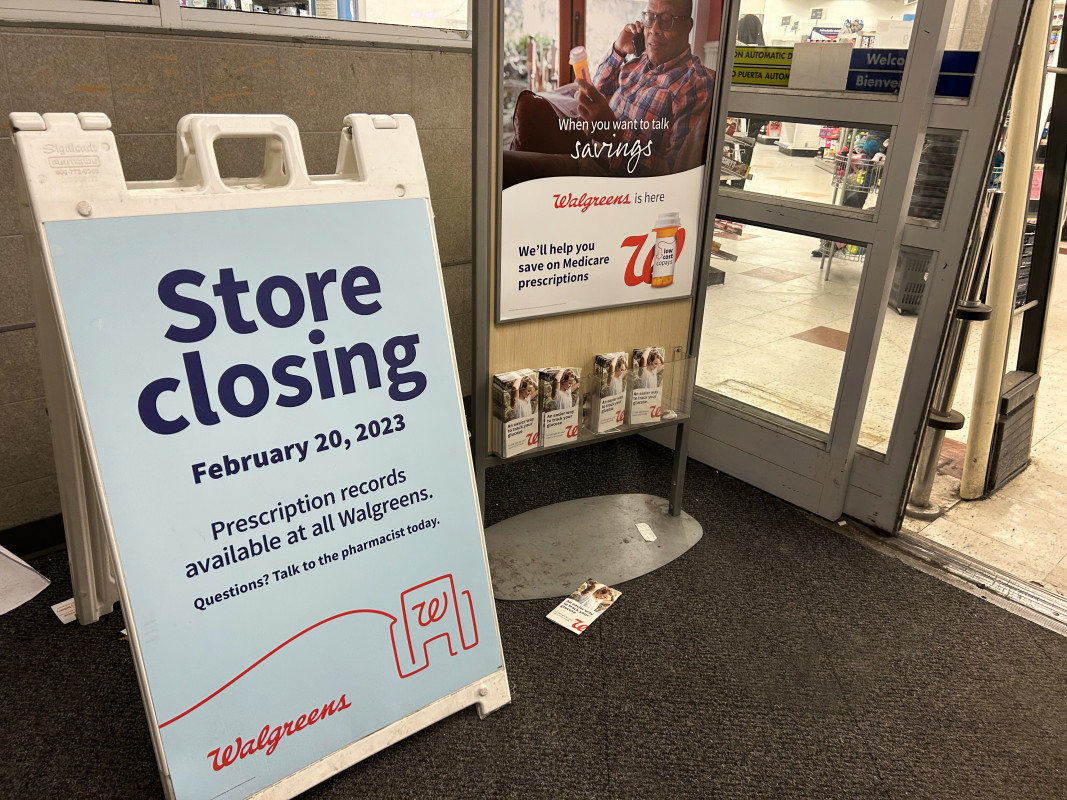
It's no secret that U.S. drugstore landscape has been consolidating at a jarring pace now that the pandemic has passed.
Rite Aid (RAD) -) has been reportedly toying with the possibility of filing Chapter 11 bankruptcy and liquidating many of its stores. It currently has some $3.3 billion in debt. The proposed deal would permanently shutter 400 to 500 of the chain's current 2,100 stores and hand them over to creditors or other interested buyers.
DON'T MISS: After Walgreens CEO's sudden exit, chain makes a major move that will help you
With the the pandemic now firmly behind us and brick-and-mortar retail at a crawling recovery pace compared with more robust corners of the market, drugstores have been ripe for change and, perhaps inevitably, consolidation.
Walgreens (WBA) -) recently parted ways with its intrepid covid-era chief executive, Rosalind Brewer, who abruptly left on Sept. 1. The drugstore is now seeking someone with "deep health-care experience to lead in today’s dynamic environment," according to Executive Chairman Stefano Pessina.
It's clear that if a U.S. drugstore isn't implementing change, change is being forced on it, and more often than not that spells trouble. And that's before accounting for the sharp spike in shoplifting and other retail crime, which has cut deeply into drugstores' bottom lines and forced some to either shutter or chain up frequently stolen goods.
CVS (CVS) -) is one chain that has managed to weather the post-covid recovery with as much ease and grace as is possible in the sector. The largest drugstore in America said in mid-September that it would launch a new company, called Cordavis, which would aim to bring down drug prices for customers by producing biosimilar medications and negotiating directly with drugmakers.
The prospect is exciting for both customers and investors because CVS has not only market opportunity but also the scale to compete with the large drugmakers.
But it's been active not only on the partnership and growth front. CVS is also consolidating, thanks to a recent policy change that will shutter hundreds of locations at a rapid clip.

CVS is shuttering hundreds of stores
A policy change first put forward in 2021 meant that hundreds of CVS locations would close as the chain worked to cut costs and get ahead of losses.
"The company has been evaluating changes in population, consumer buying patterns and future health needs to ensure it has the right kinds of stores in the right locations for consumers and for the business. As part of this initiative, CVS Health will reduce store density in certain locations and close approximately 300 stores a year for the next three years," the company said in late 2021.
The drugstore has already shuttered locations in Des Moines, Iowa; Berkeley, Calif.; San Francisco; Albany, N.Y., Houston, Kansas City, Mo., and Tallahassee, Fla.
"We consider many factors when making store-closure decisions, including maintaining access to pharmacy services, local market dynamics, population shifts, a community’s store density, and ensuring there are other geographic access points to meet the needs of the community," a spokesperson said of the decision.
As many as 900 stores are expected to close through the end of 2024.
Walgreens also said during its Q3-earnings call in June that it planned to close as many as 450 stores across the U.S. and U.K. to simplify the business.
Action Alerts PLUS offers expert portfolio guidance to help you make informed investing decisions. Sign up now.







